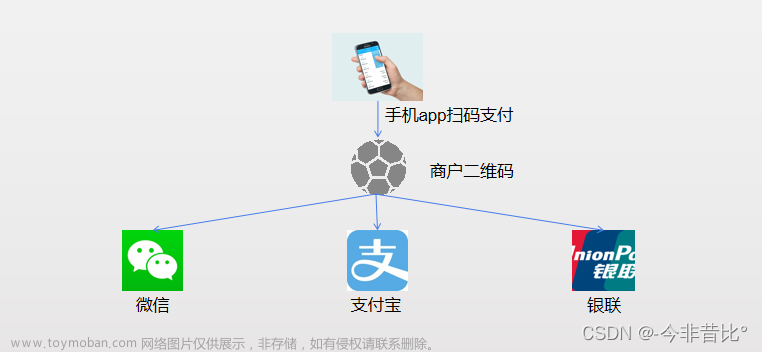记录:470
场景:Java中使用instanceof判断对象类型。例如在解析JSON字符串转换为指定类型时,先判断类型,再定向转换。在List<Object>中遍历Object时,先判断类型,再定向转换。
版本:JDK 1.8,Spring Boot 2.6.3。
一、解析Json字符串时,使用instanceof判断对象类型
场景:在基于微服务开发中,一个请求会贯穿多个微服务,一般在微服务之间传递参数均以JSON字符串为主流。
1.JSON字符串示例
{
"getTime": "2023-08-13 17:50:12",
"getValue": [
"13",
350,
193.62,
37,
"1813"
]
}解析:在getValue中传递参数,既有字符串、int型、double型等,在把JSON字符串时,无法转为指定类型,只能使用List<Object>类型是最合适。
需求:本例需求场景这些字符必须都转换为Double类型,再放到业务中使用。
2.使用instanceof判断对象类型
public static Double getDouble(Object obj) {
if (obj == null) return null;
Double result = null;
try {
if (obj instanceof Integer) {
result = ((Integer) obj).doubleValue();
} else if (obj instanceof Long) {
result = ((Long) obj).doubleValue();
} else if (obj instanceof Double) {
result = (Double) obj;
} else if (obj instanceof BigDecimal) {
result = ((BigDecimal) obj).doubleValue();
} else if (obj instanceof String) {
result = Double.parseDouble((String) obj);
}
} catch (Exception e) {
log.info("类型转换异常");
e.printStackTrace();
}
return result;
}3.测试示例
public static void f1() {
String result = "{\n" +
" \"getTime\": \"2023-08-13 17:50:12\",\n" +
" \"getValue\": [\n" +
" \"13\",\n" +
" 350,\n" +
" 193.62,\n" +
" 37,\n" +
" \"1813\"\n" +
" ]\n" +
"}";
JSONObject jsonResult = (JSONObject) JSON.parse(result);
List<Object> listResult = (List<Object>) jsonResult.get("getValue");
List<Double> listResultD = new ArrayList<>();
//类型转换
listResult.forEach(item -> {
listResultD.add(getDouble(item));
});
//遍历结果
listResultD.forEach(item -> {
System.out.println("" + item);
});
}4.输出结果
执行f1
13.0
350.0
193.62
37.0
1813.0二、遍历List<Object>时,使用instanceof判断对象类型
场景:在接收到结果集List<Object>时,Object的具体类型由多个时,使用instanceof判断对象类型,再转换增强代码合理性。
1.使用instanceof判断对象类型
public static Double getDouble(Object obj) {
if (obj == null) return null;
Double result = null;
try {
if (obj instanceof Integer) {
result = ((Integer) obj).doubleValue();
} else if (obj instanceof Long) {
result = ((Long) obj).doubleValue();
} else if (obj instanceof Double) {
result = (Double) obj;
} else if (obj instanceof BigDecimal) {
result = ((BigDecimal) obj).doubleValue();
} else if (obj instanceof String) {
result = Double.parseDouble((String) obj);
}
} catch (Exception e) {
log.info("类型转换异常");
e.printStackTrace();
}
return result;
}2.测试示例
public static void f2() {
List<Object> list01 = new ArrayList<>();
Integer integerV = 813;
Long longV = 209206L;
Double doubleV = 209207.13D;
BigDecimal bigDecimal01 = new BigDecimal("209208.23");
BigDecimal bigDecimal02 = new BigDecimal("209209");
String strV = "209210.35";
list01.add(integerV);
list01.add(longV);
list01.add(doubleV);
list01.add(bigDecimal01);
list01.add(bigDecimal02);
list01.add(strV);
List<Double> list02 = new ArrayList<>();
//类型转换
list01.forEach(item -> {
list02.add(getDouble(item));
});
//遍历结果
list02.forEach(item -> {
System.out.println("" + item);
});
}3.输出结果
执行f2
813.0
209206.0
209207.13
209208.23
209209.0
209210.35以上,感谢。文章来源:https://www.toymoban.com/news/detail-652317.html
2023年8月13日文章来源地址https://www.toymoban.com/news/detail-652317.html
到了这里,关于Java中使用instanceof判断对象类型的文章就介绍完了。如果您还想了解更多内容,请在右上角搜索TOY模板网以前的文章或继续浏览下面的相关文章,希望大家以后多多支持TOY模板网!








